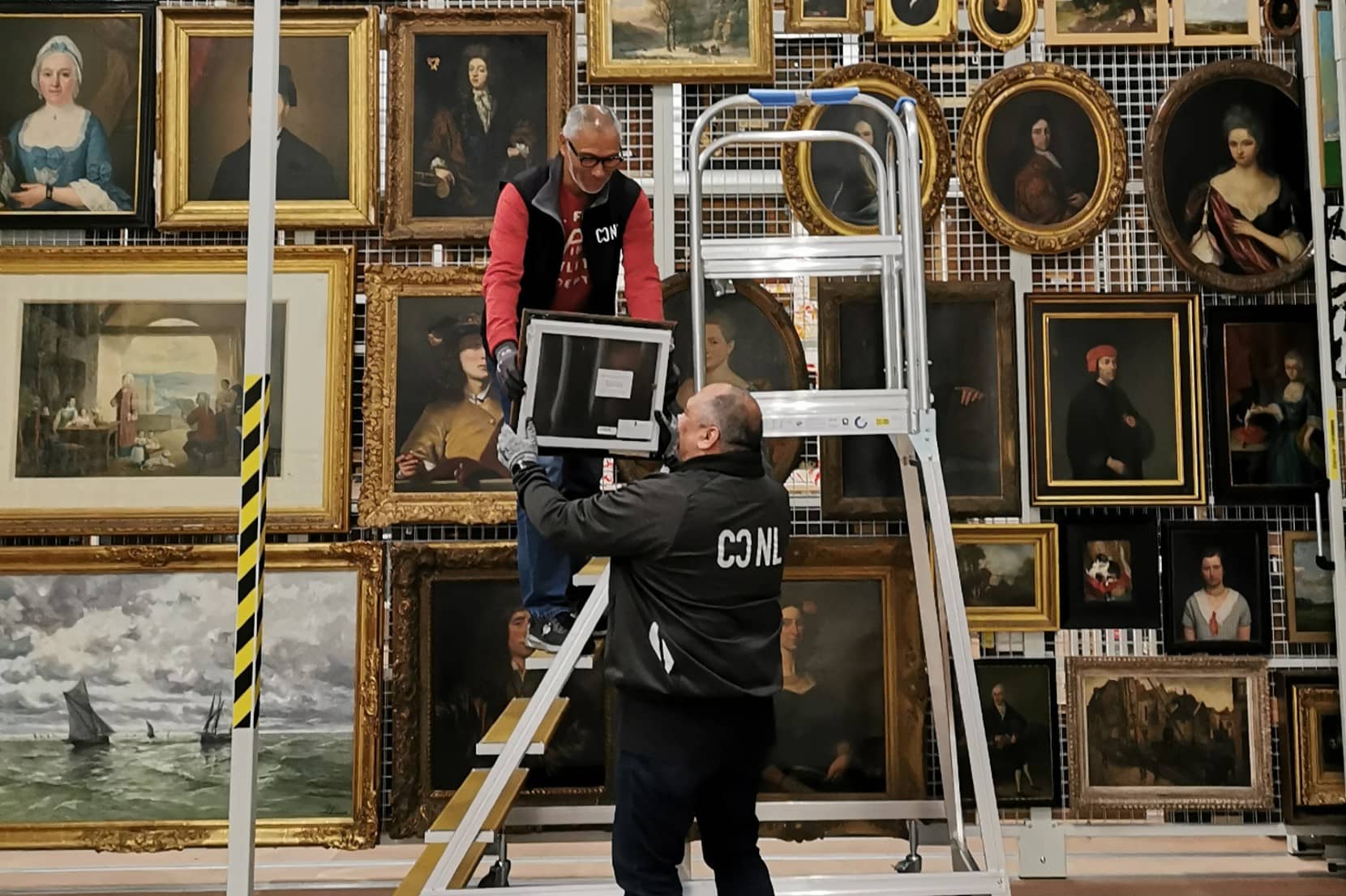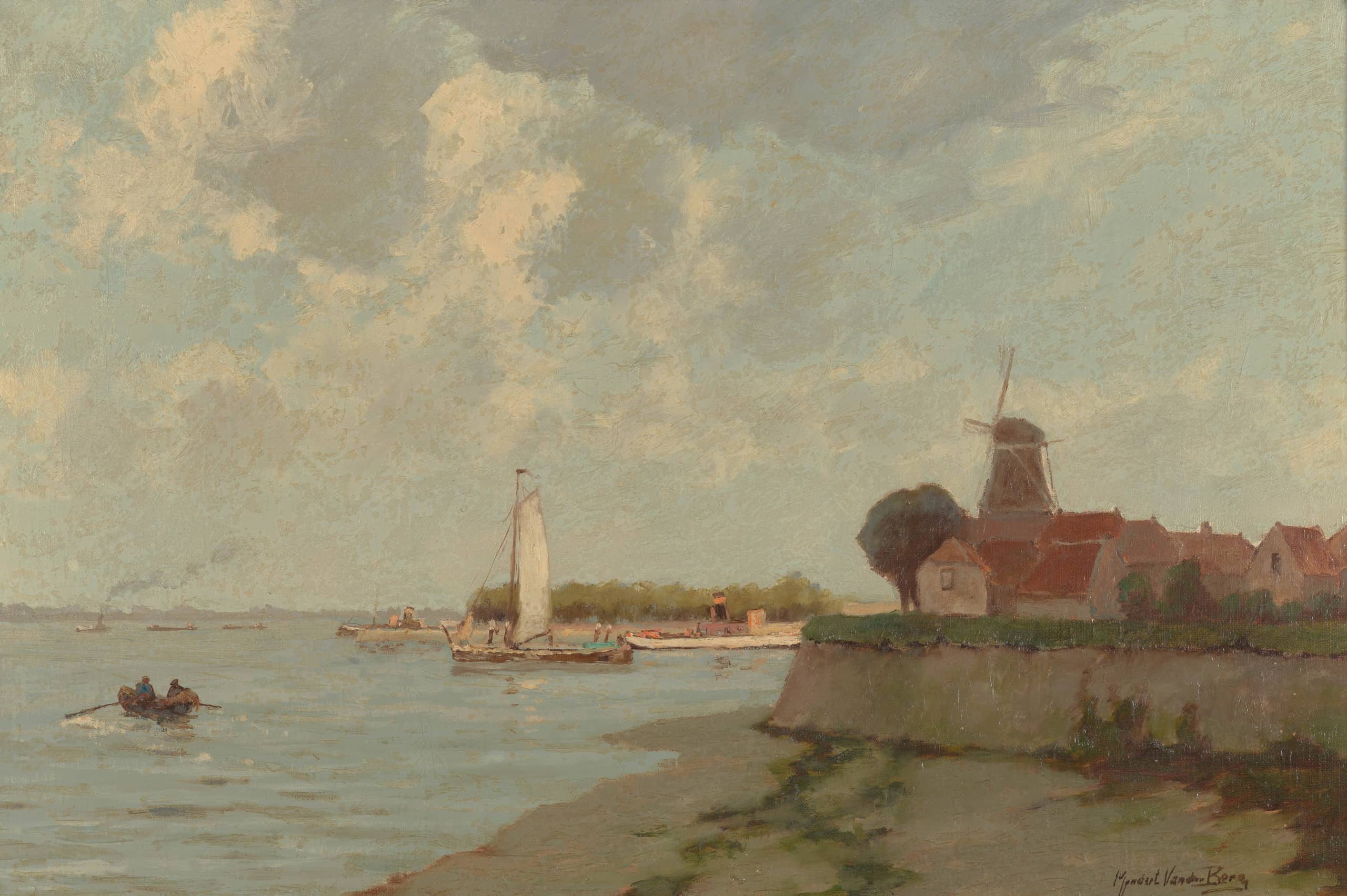In the period 1933-1945 the Nazi regime looted and confiscated an unprecedented number of cultural objects in many countries, including the Netherlands. Objects were also sold or surrendered, sometimes under duress. Many art and cultural objects ended up in Germany but objects were also acquired for museums in the Netherlands. After the war many objects were returned to the Netherlands from Germany and were included in the National Art Collection.
After the Second World War
Up until the 1950s some of the objects that were returned from Germany were returned to their lawful owners. Some were sold at auction where no owner could be traced. What was left over became part of the National Art Collection under the title 'NK Collection' (The Netherlands Art Property Collection). The NK Collection comprises paintings, works on paper and applied art objects, such as furniture and ceramics. These works are available on loan to museums and a number are displayed in government buildings.
If it is certain, or highly likely, that objects were looted, confiscated or sold under duress between 1933 and 1945, under the current restitution policy they can be returned to the original owners or their heirs.
Information and advice
The Cultural Heritage Agency of the Netherlands (RCE) offers its services to all those seeking information on the National Art Collection and on restitution. It is the first point of contact for potential rights holders and collection managers with respect to the restitution policy, the procedure to be followed and provenance research. In this way, the Agency aims to facilitate submission of requests for restitution.
Researchers can request information about how to conduct provenance research and can be referred to available archives and organizations that may be of assistance here.
In addition to answering questions and providing advice, the Agency plans to provide education and to share knowledge. By compiling and disseminating as much information as possible, the Agency aims to provide its best possible support for provenance research and the identification of possible rights holders.
For questions, information or advice, please contact our Infodesk.
Featured

Newsletters Cultural goods WWII
This online newsletter is produced few times a year and is available in three languages.
Newsletters Cultural goods WWII
'In pursuit of provenance' weblogs
Provenance researchers focus on different objects from the Netherlands Art Property (NK) collection.
In pursuit of provenance weblogs
